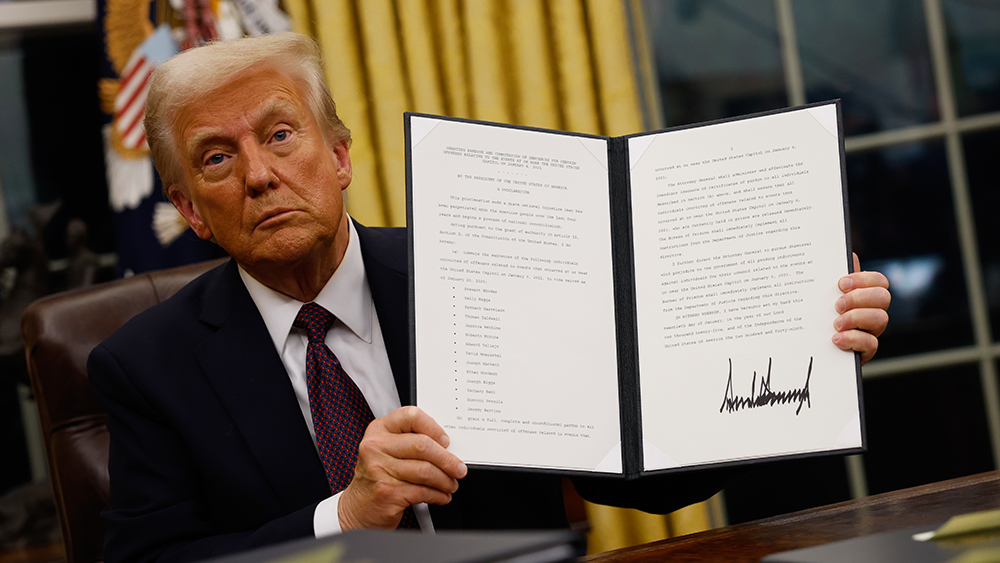
- President Joe Biden is contemplating issuing preemptive pardons for figures like Dr. Anthony Fauci and others who may face legal scrutiny under the incoming Trump administration, sparking intense political and legal debates.
- Health and Human Services Secretary Xavier Becerra has warned against the misuse of presidential pardon power, emphasizing its gravity and the potential threat to the rule of law if used as a routine political tool.
- The debate arises amid concerns over Trump’s second-term plans, including potential legal actions against individuals like Fauci, who has been accused by Republicans of mishandling the COVID-19 pandemic and other issues.
- While preemptive pardons have historical precedent (e.g., Gerald Ford’s pardon of Richard Nixon), their use remains largely untested, with legal experts divided on the implications for individuals like Fauci, Liz Cheney and Mark Milley.
- The decision on preemptive pardons highlights tensions over the rule of law and presidential authority, with potential long-term consequences for the justice system and the legacy of Biden’s administration.
In the final days of his presidency, Joe Biden is weighing a controversial move: issuing preemptive pardons for key figures like Dr. Anthony Fauci and others who may face legal scrutiny under the incoming Trump administration. The debate over these pardons has sparked intense political and legal discussions, with Health and Human Services (HHS) Secretary Xavier Becerra warning against the implications of such actions. As Biden prepares to leave office, the question of whether to shield potential political targets from prosecution has divided Democrats and raised concerns about the precedent it could set for presidential power.
Becerra’s warning: a legal and moral dilemma
HHS Secretary Xavier Becerra, a former California attorney general, expressed deep reservations about the use of preemptive pardons in an interview with The New York Times on Wednesday. “It sinks my heart to think that we’re going to use the pardon process in a way that will follow the whims of whoever’s in the White House,” Becerra said. He emphasized the gravity of presidential pardon power, urging that it be held “in very high regard” rather than becoming a routine political tool.
Becerra’s comments came hours after Biden revealed in an interview with USA Today that he was still considering preemptive pardons for individuals who might be targeted by President-elect Donald Trump’s administration. While Becerra did not explicitly name Fauci, the former chief medical adviser and longtime director of the National Institute of Allergy and Infectious Diseases, he made it clear that he viewed the potential misuse of pardons as a threat to the rule of law.
The political backdrop: Trump’s vow for retribution
The possibility of preemptive pardons arises amid growing concerns about Trump’s plans for his second term. Trump’s nominees for key positions, including Kash Patel for FBI director and Pam Bondi for attorney general, have signaled their intent to pursue legal action against individuals they believe unfairly targeted Trump during his first presidency. Among those potentially at risk is Fauci, who has faced accusations from Republicans of mishandling the COVID-19 pandemic, evading public records laws and lying to Congress about the origins of the virus.
Robert F. Kennedy Jr., Trump’s nominee to succeed Becerra as HHS secretary, has also been vocal about his desire to prosecute Fauci if evidence of wrongdoing is found. During his own presidential campaign, Kennedy pledged to hold Fauci accountable for his role in the pandemic response.
Democrats are divided on how to respond to these threats. Some, like Rep. Brendan Boyle (D-Pa.), argue that Biden must act decisively to prevent Trump from abusing his power. “If we’re serious about stopping Trump’s authoritarian ambitions, we need to act decisively and use every tool at our disposal,” Boyle said in a statement last month. Others, however, worry that preemptive pardons could undermine the justice system and set a dangerous precedent.
Historical precedent and legal uncertainty
The concept of preemptive pardons is not entirely new. In 1974, President Gerald Ford granted a blanket pardon to Richard Nixon for any crimes he may have committed during the Watergate scandal, even though Nixon had not yet been charged. This move, while controversial, established a legal precedent for presidential pardons that extend to potential future charges.
Legal experts agree that Biden has the authority to issue preemptive pardons, but the practice remains largely untested. White House aides have reportedly been debating the implications of such pardons, particularly for individuals like Fauci, former Rep. Liz Cheney and retired Gen. Mark Milley, who have been outspoken critics of Trump.
“The question right now is whether people being considered for these pardons want them,” one source familiar with the discussions told Reuters. White House Press Secretary Karine Jean-Pierre has indicated that more pardons are expected before Biden leaves office, but the specifics remain unclear.
A defining moment for presidential power
As Biden’s presidency draws to a close, the debate over preemptive pardons underscores the broader tensions surrounding the rule of law and the balance of power in American politics. While some view these pardons as a necessary safeguard against potential abuses by the incoming administration, others see them as a troubling erosion of legal norms.
For now, the decision rests with Biden, who must weigh the immediate political implications against the long-term consequences for the presidency and the justice system. Whatever he decides, the outcome will likely shape the legacy of his administration and set a precedent for how future presidents wield their pardon power in an increasingly polarized political landscape.
Sources include:
Please contact us for more information.




















